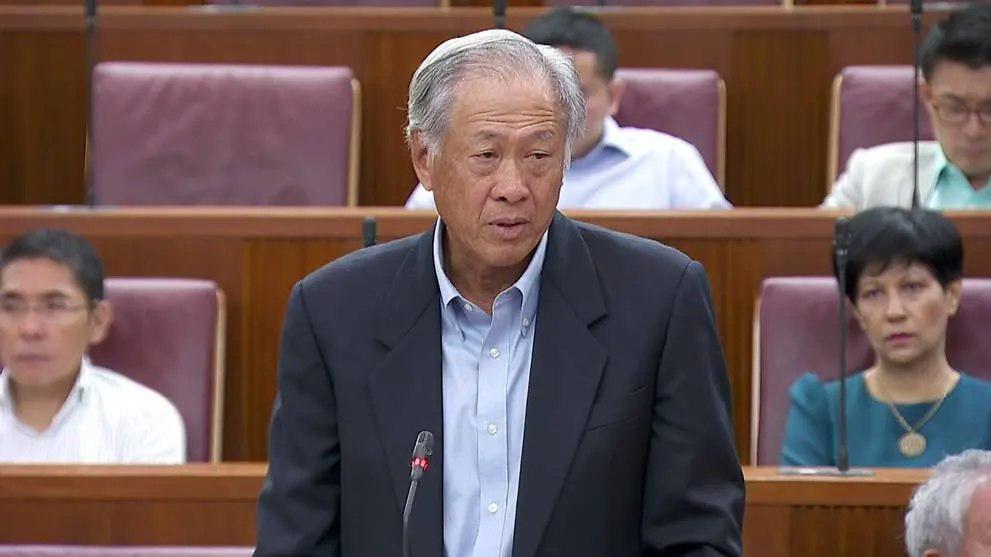An average of 2 per cent of servicemen get punished under the Singapore Armed Forces (SAF) Act for safety lapses each year.
This was revealed by Defence Minister Ng Eng Hen in Parliament on February 11 in response to questions about recent servicemen deaths.
 Ng Eng Hen. YouTube screenshot.
Ng Eng Hen. YouTube screenshot.
"Over the past three years, an average of 2 per cent of servicemen a year was punished under the SAF Act for safety lapses," he said.
"Their punishments ranged from a fine to detention and administrative penalties such as delays in promotion and reduction in benefits," Ng added.
Ng said that the SAF needs to have a strong safety culture in all its units in order to achieve zero fatalities during NS training. This safety culture and consciousness must permeate down to every last soldier and it starts from the top:
Ng shared that all commanders undergo safety training and know that safety lapses will affect their performance review. Former senior commanders are also engaged as Safety Officers to help ensure safe conduct of training. Experienced regular trainers also partner NSmen commenders to design training and safety plans, especially for high risk training activities.
Open reporting a tenet of SAF safety culture
Aside from safety training, Ng said that soldiers must have a strong respect for safety rules, take care of one another, and speak out on safety concerns, even for unsafe practices that do not lead to accidents.
The Defence Minister emphasised that the SAF has avenues for soldiers to report unsafe practices to their superiors regardless of rank and without fear of reprisal. This is stipulated in the Army Training Safety Regulations.
"Servicemen can also report safety incidents and near-misses through a 24-hour safety hotline," Ng added.
According to a Mindef release, such open reporting is a key tenet of the SAF safety culture.
The Ministry regularly conducts surveys among national servicemen to solicit feedback on training safety.
In addition, servicemen and members of the public may provide feedback on safety lapses to the MINDEF Feedback Unit.
The Ministry cited an example of a full-time national servicemen who spotted two servicemen driving a Light Strike Vehicle without wearing helmets. When they were stopped for violating driving safety regulations, it was discovered that they were not authorised to drive the Light Strike Vehicle. Both of them were punished accordingly.
Ng added that training safely and training realistically are not mutually exclusive and the measures that the SAF has in place will lead the Ministry to achieving zero training fatalities - a goal which Ng said is not impossible:
"Over the past 17 months, four national servicemen have passed away during training. In 2012, the SAF also experienced four training fatalities, that year. But from 2013 to 2016, we had none. How did that turnaround occur? This was probably due to multiple factors, but I think the new safety measures we put into place after the devastating incidents of 2012 had an effect. If we put our minds and effort to achieve zero training fatalities, it can be achieved."
Ng: "I am deeply sorry"
While Ng acknowledged that parents have lost "precious sons" to National Service, he insisted that Singapore must never give up on its defence and leave the country open to outside aggressors.
Ng ended his ministerial statement with the promise that the Mindef and SAF are accountable for every NS man entrusted to them:
"I am deeply sorry for the loss of four precious NS men in the last 17 months. The SAF will strengthen its safety systems. Even as we honour those who died in service of our country, we must soldier on, to build a strong defence, to protect Singapore and to protect every NS man during training."
Related stories on the deaths of servicemen:
Top image via Mindef's Flickr page.
If you like what you read, follow us on Facebook, Instagram, Twitter and Telegram to get the latest updates.
